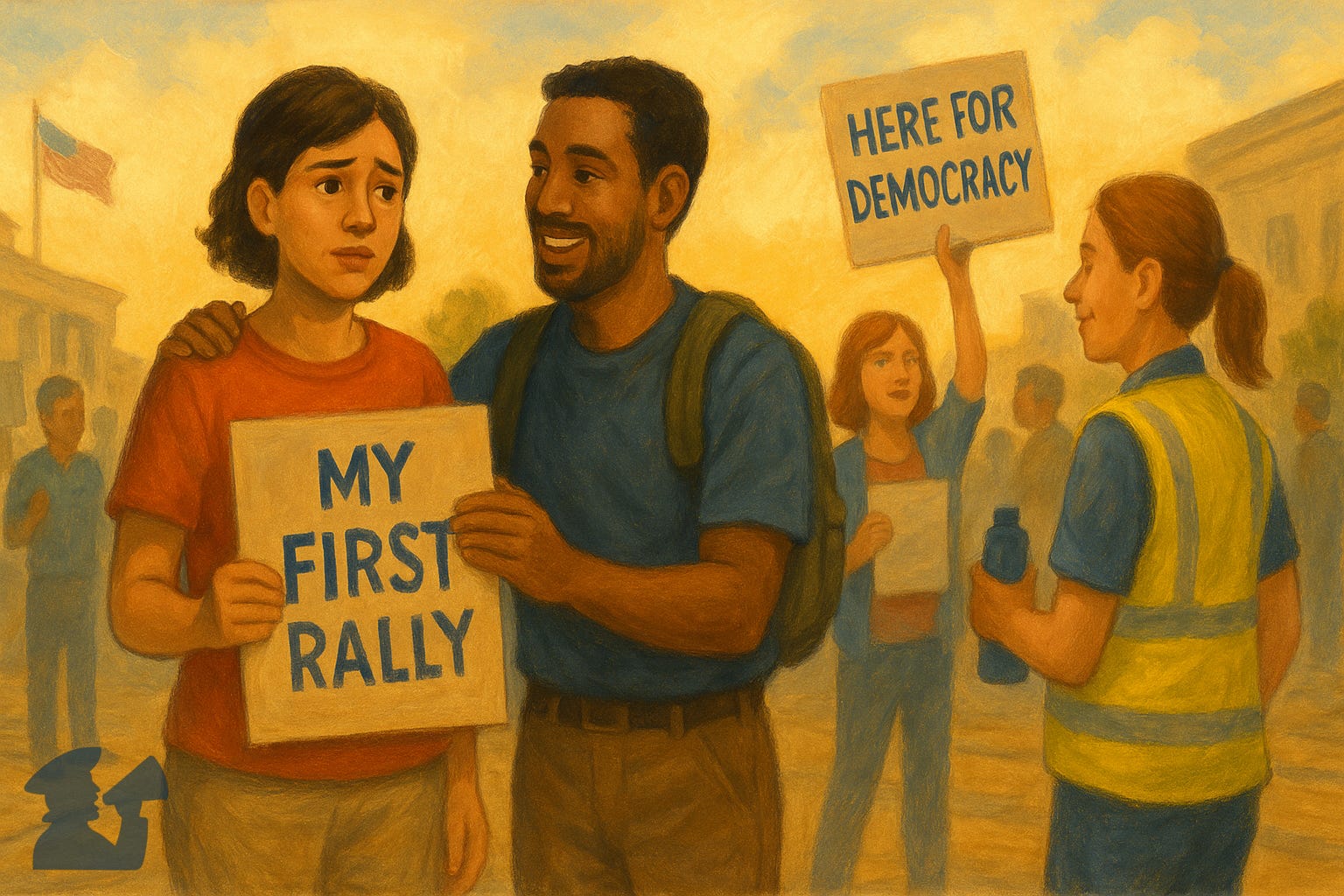Worried About Going to a Pro-Democracy Rally?
Feeling a little nervous? That's okay.
Here’s How to Stay Safe and Confident
You care deeply about what’s happening in our country. You want to stand up for democracy. You’re ready to take action.
But if you’ve never attended a rally before, it’s normal to feel a little nervous.
What should I expect? Is it safe? What if something goes wrong?
At Southwest Crier, we hear these questions all the time, especially from people who are just starting to engage.
The truth is: you’re not alone in feeling this way. And the even better truth? With a little preparation, you can attend your first pro-democracy rally safely, confidently, and powerfully.
While we’ve never had any problems at our rallies in Chaska, here are something things you should know.
1. Know Why You're Going
The most important preparation isn’t logistical, it’s personal.
Take a moment to remind yourself why you're showing up. Whether it’s to defend voting rights, push back against authoritarian threats, or stand up for truth, centering your purpose will give you confidence.
You don’t have to have all the answers. You just need to bring your values and your voice.
2. Prepare Your Sign
Creating your sign before you go helps you mentally commit and makes you visible once you're there.
Keep your message short and clear (5 words or fewer works best)
Use bold, easy-to-read letters
Pick high-contrast colors for maximum visibility
3. Dress for Comfort & Practicality
Wear weather-appropriate clothing.
Bring water, snacks, sunscreen, and hand sanitizer.
Wear comfortable shoes. You may be standing or walking for a while.
Bring a fully-charged phone.
Pack lightly but thoughtfully. You want to be able to move easily.
Note: Many rallies have guidelines against bringing wooden sticks or poles for signs, as these can be considered safety hazards. Use cardboard tubes instead.
4. Know Your Rights
In the United States, the First Amendment protects your right to peacefully assemble and express your views.
You can stand on public sidewalks and in public parks.
You can carry signs, chant, and express your views peacefully.
You are allowed to photograph or film public rallies and even law enforcement officers, as long as you don’t interfere.
If law enforcement approaches:
Stay calm.
Ask, “Am I free to leave?”
If detained or arrested, state clearly: “I wish to remain silent. I want a lawyer.”
Avoid:
Arguing or escalating.
Engaging aggressively with counter-protesters.
(For a full know-your-rights overview, check the ACLU's excellent resources.)
5. Stay With Others
Whenever possible, attend rallies with friends, family, or local groups. There’s safety—and solidarity—in numbers.
Share contact information ahead of time.
Designate a meeting spot in case you get separated.
Keep an eye out for official rally marshals or volunteers (our people wear blue or yellow vests) who can answer questions.
6. Follow the Lead of Event Organizers
Most pro-democracy rallies are carefully organized, with clear guidelines for safety, behavior, and movement.
Listen to announcements and follow any instructions.
Respect the designated protest zones.
Help create a safe, welcoming environment for everyone.
Organizers work hard to make sure rallies remain peaceful and impactful; your cooperation helps ensure that.
7. Trust Your Instincts
If something feels unsafe or escalates beyond peaceful protest:
Move calmly away from the situation.
Reconnect with your group.
Prioritize your personal safety.
The goal is always to show up for democracy in ways that are effective, visible, and safe.
You Belong Here
If you feel nervous, know this: so do many others. The important thing is that you care enough to show up. That first step (holding your sign, standing with others, raising your voice) makes a real difference.
You don’t have to be an expert. You don’t have to be fearless. You just have to care.



